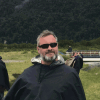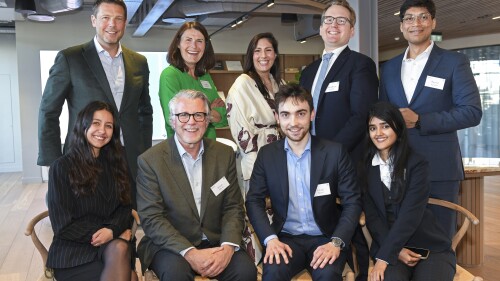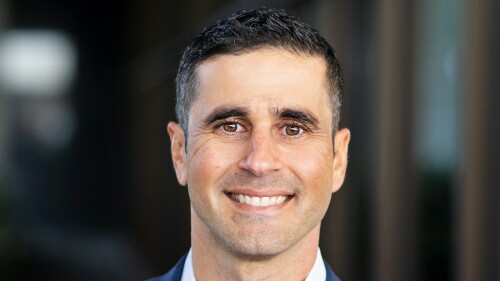Boosting livability is at the heart of Bangkok’s ambitions to thrive and develop as a global city, Governor Chadchart Sittipunt said in a dynamic presentation to ULI Asia Pacific’s REImagine conference. The governor explained that livability was the Thai capital city’s target because it is key to attracting and keeping global talent.
Sittipunt is an engineer by trade, a former academic and a former government minister. He was elected governor of Bangkok in a landslide victory earlier this year. Only in the job since May, he has won plaudits for his approachability and commitment to transparency.
Quoting urbanist author Edward Glaeser, Sittipunt said, “There is no such thing as a successful city without human capital.” Sittipunt added that boosting livability meant greening the city, fighting corruption, creating amenities, and boosting the efficiency of the city.
He contrasted Bangkok’s popularity as a tourist destination with its livability. The city
is the most visited city in the world according to Mastercard, yet is rated only 98th out of 140 nations in the Economist Intelligence Unit’s global livability index. “You want to come here for a short time because the city is exciting, but for a longer stay things like traffic start to become tiring,” he said.
The city’s goal is to become one of the top 50 most livable cities.
Sittipunt focused on some of the positives for Bangkok: its history, multiculturalism, vibrant cultural events, great food and shopping. The city also offers plenty of office space at occupancy costs which are less than half than those of Singapore and much lower living costs.
However, Thailand ranks very poorly in terms of transparency and is ranked 110th out of 180 nations in the Corruption Perception Index. Its index score has furthermore been in decline since 2017. Bangkok is also a top 10 city for congestion and has very low levels of usable green space.
For his first four months in office, Sittipunt was operating with almost zero budget, so dedicated himself to building trust between the city government, business, and citizens. He spoke of Thailand’s damaged social contract, following years of political upheaval and military intervention. One of his early measures has been to publish the city’s budget online in an accessible fashion.
The city government has been using digital platforms to help people communicate with it and to drive troubleshooting. The unusually named Traffy Fondue system, for example, allows citizens to report problems to the city government and for action to be taken without the level of bureaucracy which used to be needed. As well as solving problems, he said, the application helps build trust: “Everyone is equal on the platform.”
In the built environment, Bangkok is working to improve its pavements, to make the city more comfortable and safer for walking, as well as more accessible for the elderly and disabled. As well as plans to build 1,000 km (621.4 m) of walkways, the city has also begun a campaign to plant one million trees.
Collaboration is an important part of the city’s planned renaissance and Sittipunt is building links with business organizations, other public sector bodies and other cities around the world.
Small measures can make a difference. Sittipunt opened by showing a recent success for the city: its first dog park, which attracted hundreds of dogs and their owners in its first few days. The new park was surprisingly well received by foreign chambers of commerce, he said, which recognized it as the sort of amenity Bangkok had been lacking and which would help attract talent.
To conclude, he returned to the importance of building trust in order for the city to thrive. “If you have trust in the system, you can do anything.”




![Western Plaza Improvements [1].jpg](https://cdn-ul.uli.org/dims4/default/15205ec/2147483647/strip/true/crop/1919x1078+0+0/resize/500x281!/quality/90/?url=https%3A%2F%2Fk2-prod-uli.s3.us-east-1.amazonaws.com%2Fbrightspot%2Fb4%2Ffa%2F5da7da1e442091ea01b5d8724354%2Fwestern-plaza-improvements-1.jpg)

